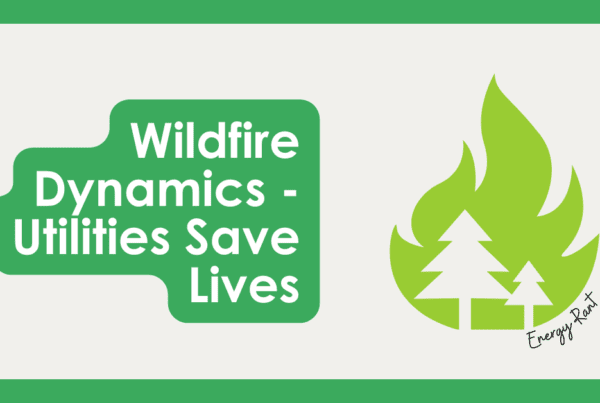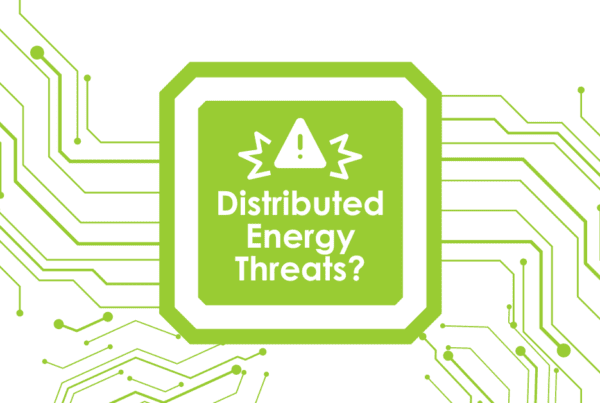As administrations and congresses come and go, one thing remains the same: “there is no clear energy policy”, and “we need to reduce our dependence on foreign oil”. Neither one is ever addressed.
First, what the heck is a clear energy policy anyway and are we sure we want one? When the government messes with any market, the result is always negative for consumers and in some cases bordering on catastrophe. The only exception I see is utilities, which lend themselves to monopolistic efficiency. You may need to lie down after that head-spinning oxymoron. But seriously, in order to have economies of scale, it makes sense to create giant, relatively efficient power plants where fuel can be hauled by the trainload of coal equivalent and power distributed inexpensively to end users. So the government regulates these monopolies I would say with success as energy costs are dirt cheap.
Most other government interventions I can think of result in disaster. Consider the current pathetically weak economy. First off, the reason for the deep, deep recession we fell into three years ago was fueled like monsoon rains fuel future wildfires in the deserts of AZ and CA – by the government. In the 1990s congress was pushing for home ownership for every American. Add to this Fannie Freddie Mae Mac, which socialized the risk (taxpayers) and privatized the benefit (home buyers). On top of this add politically motivated easy money by the federal reserve. The result was exactly as I say – a growing stock of fuel for a massive fire to crash and burn. Entities from the government, financial institutions, and individuals contributed to the massive bubble that popped with a horrific bang. We are in the third year of a housing hangover – imagine a three-day hangover from a bender you may have enjoyed in your wild and crazy youth.
WARNING: What you are about to read may cause severe brain damage. Position yourself to protect your head or don a helmet before reading.
From a resource preservation perspective, the “energy policy” we’ve had over the years has been good for energy conservation. Why? Because if there is one thing that motivates people more than anything, it’s money. Conservationists and greenies say our energy prices are artificially low because of government subsidy. I disagree, totally. 100%. If we REALLY wanted low energy prices, including electricity and petrol, we could have it by tomorrow afternoon, theoretically. We could collapse the oil prices immediately by passing bills and signing into law the domestic production of more oil in addition to importing from our friends, the Canadians. Last time increased domestic production was discussed the argument was that it wouldn’t have an impact for 10 years and then it would be minimal. Wrong! As I mentioned before, people are not rats. We prepare for, hedge and bet on future to reduce and take advantage of risk. Announcing future substantial domestic production increases would have an immediate effect. Conversely, the strategic oil reserve, if I remember correctly includes a month of US consumption and is not even worth talking about with regard to easing prices.
There are an estimated 3 trillion barrels of oil locked up in shale and a huge chunk of that is under mountain states of the United States. Incidentally, at today’s consumption rate, shale oil alone would last nearly 100 years (worldwide).
We could also go forward with the pipeline from the tar sands of Alberta, Canada. The tar sands hold an estimated 1.7 trillion barrels; enough to fuel the United States for over 200 years per my calculations. With roughly 300 years of oil supply along the Rocky Mountains of North America alone, I think I can skip the flood of offshore oil available in the Gulf and up and down the east and west coasts of the country. Peak oil? Sure. Sometime a few hundred years down the road. It depends on what you call reserves.
Similarly, we have glut of natural gas like we haven’t experienced in my lifetime due to: (1) hydraulic fracturing technology and (2) horizontal drilling technology. Without investigating exact numbers and areas, this vast trove runs from Ohio through Appalachia to New York with a bunch of states in between and around (as just one deposit). And we already know the U.S. is the “Saudi Arabia” of coal.
The North American Oil stocks discussed above are under federal government control. The oil shale in the west is mostly under U.S. government property. We could build the pipeline from the tar sands to refineries all over the country if Washington chose to do so.
I almost forgot. We are running low on oil from the North Slope of Alaska – that is, oil from the permitted area of the North Slope. Flows are becoming too low to maintain enough temperature for the oil to flow freely from Prudhoe Bay to Valdez. If more land isn’t opened for drilling, this fortune in assets, the pipeline, may need to be mothballed.
So we have an “energy policy”, consisting of greatly constrained domestic production in lieu of buying oil from the most volatile regions of the planet and in some cases, directly from dictators who will and do mow down their own people if they get out of line. The “subsidies” include tax deductions for depleting reserves, like depreciation every other business uses, plus gobs of military spending to keep the “peace” in these volatile regions. You may call that a big fat subsidy. I call it a choice.
We are paying dearly for this energy policy: Tax dollars for defense, policy-driven HIGH energy prices, human lives, higher prices for renewable energy, higher prices for alternate fuels, e.g., natural gas versus coal, higher food prices because 40% of our largest crop is used to make fuel – one of the stupidest policies imaginable, and so on.
It isn’t all bad although there are mistakes along the way and shortages of honesty and full disclosure. One positive byproduct is sustainability (except for ethanol) in reducing energy consumption today for use by future generations. That is a good thing. I most highly prefer to cut waste and not drill and mine willy nilly.
Ironically, it isn’t for altruism for future generations but out of selfishness that this is happening. It’s selfish because Americans want tolerably priced energy but they don’t want look at its production or transport in any way, shape, or form – literally. We therefore choose to go make messes in others’ countries. On top of this, in the US where renewable energy is generated on the Great Plains and nobody there complains about it, greenies in the cities don’t even want transmission lines through the country to charge their frivolous Nissan Leafs with it. We should force them to decide where they want their power from. They don’t want anything, except energy – by Merlin the magician.
Tidbits
If you have read many of these posts you would know I’m a blasphemous heretic with respect to climate change (or probably more of an out-of-the-closet loud mouth). For a few samples, you may be interested in seeing Green Jacket, Cigar, Gold Rings and Disneyland, This is not Tee-Ball, and Law of Gravity, Repealed. Without recapping any of that, this week I came across one more detail that screams don’t bother. Manmade CO2 emissions are three percent (3%) of total CO2 emissions with nature making up the other 97%. So if we spend a gazillion dollars and all sacrifice our firstborn we can reduce total CO2 emissions by maybe 1%. Also, according to recently released analysis of NASA data by Ph.D. climate scientists, climate computer sims, upon which all the hype is based, far underestimate re-irradiation of heat back to space. In English, the earth dumps heat through the atmosphere at much greater rates than the computers predict. I have 14 trillion reasons we should instead be focusing on a far more irrefutable, immanent disaster we can actually do something about.
This just in: The EPA, FDA and other sundry alphabet soup shills for business have declared the evil Bisphenol A (BPA) plastic is more or less harmless.





